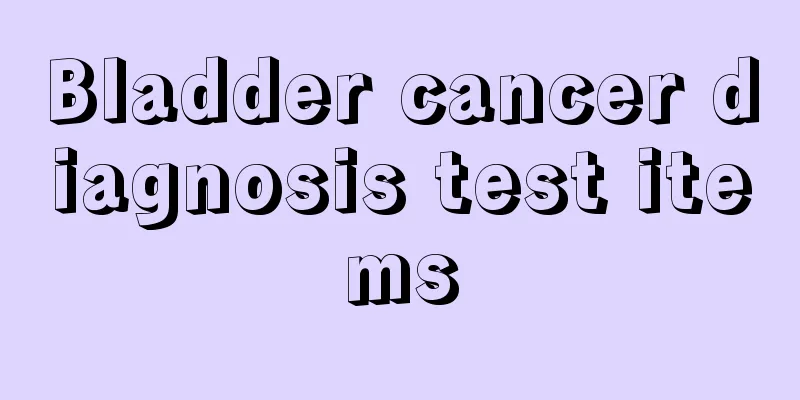Early cervical cancer may have no symptoms

|
Early cervical cancer may not have obvious symptoms, but it can be detected and treated early through regular screening. The early symptoms of cervical cancer are relatively hidden and easy to be ignored, so regular cervical cytology TCT and human papillomavirus HPV testing are key. Treatment methods include surgery, radiotherapy and chemotherapy, and the specific plan needs to be formulated according to the condition. 1. Early symptoms of cervical cancer are hidden Early cervical cancer may not have obvious symptoms, and some patients may experience mild non-specific symptoms, such as increased vaginal discharge, bleeding after sexual intercourse, or abnormal menstruation. These symptoms can easily be mistaken for common gynecological problems, leading to delayed diagnosis. Regular screening is an important means of detecting early cervical cancer. It is recommended that women undergo regular cervical cytology examinations starting at the age of 21, and women over 30 can combine it with HPV testing. 2. Causes of cervical cancer The main cause of cervical cancer is persistent infection with high-risk HPV. Other risk factors include smoking, a weakened immune system, long-term oral contraceptive use, and multiple births. Genetic factors have little impact on cervical cancer, but women with a family history of cervical cancer should be vigilant. Maintaining good living habits, such as quitting smoking and enhancing immunity, can help reduce the risk of disease. 3. Treatment of early cervical cancer The treatment of early cervical cancer is mainly surgical. Common surgical methods include cervical conization, total hysterectomy and pelvic lymph node dissection. For patients who are not suitable for surgery, radiotherapy and chemotherapy are effective alternatives. Radiotherapy includes external irradiation and internal irradiation. Common chemotherapy drugs include cisplatin, paclitaxel and carboplatin. Regular follow-up is required after treatment to monitor changes in the condition. 4. Measures to prevent cervical cancer The key to preventing cervical cancer is HPV vaccination and regular screening. HPV vaccine can effectively prevent high-risk HPV infection and is recommended for women aged 9-45. Maintaining a healthy sex life, avoiding multiple sexual partners, and using condoms can help reduce the risk of infection. Eating more foods rich in vitamins and antioxidants, such as fresh vegetables, fruits, and nuts, can help enhance immunity. Although early cervical cancer has no obvious symptoms, regular screening and active prevention can significantly reduce the risk of disease. Women should pay attention to cervical health, get HPV vaccines in a timely manner, have regular gynecological examinations, and seek medical treatment in a timely manner if abnormalities are found to ensure early diagnosis and treatment. |
<<: Is there any Chinese medicine to treat renal hamartoma?
>>: How to treat pituitary tumor to completely cure it
Recommend
Is primary liver cancer contagious? Introduction to common knowledge about primary liver cancer
The clinical manifestations of primary liver canc...
What to do if you sweat a lot
Excessive underarm sweating is a problem that man...
Which hospital is best for chemotherapy for skin cancer
Skin cancer is a skin disease that is caused by l...
Are apples diuretic?
Being unable to urinate is also a very uncomforta...
How to Differentially Diagnose Laryngeal Cancer
In recent years, laryngeal cancer has become one ...
Key points for postoperative care of patients with esophageal cancer
Postoperative care for esophageal cancer patients...
Why do I suddenly feel dizzy and want to vomit
Dizziness and vomiting is a very common symptom. ...
What are the early symptoms of breast cancer lung metastasis
Breast cancer metastasizes to the lungs. In the e...
Oil fume pipe cleaning and maintenance methods
For our kitchen, we usually use range hoods, whic...
What tests can tell me about osteosarcoma
Now, due to the social environment, the incidence...
How to treat dizziness after getting up?
Dizziness after getting up may be caused by anemi...
What is the ratio of egg to water in egg cake
Making egg cake is usually relatively simple and ...
Space cotton pillow
Some space-related cotton home textiles are very ...
Skin turns red after swimming
Summer is the season for swimming. Both adults an...
How do tooth decay come about
Toothache is not a very serious disease, but when...









